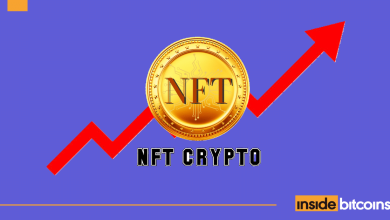Robinhood Developing Blockchain-Based Tokenized U.S. Securities Platform For European Retail Investors


Robinhood is developing a blockchain-based platform to enable European retail investors to trade tokenized U.S. securities, such as stocks, according to multiple reports from May 2025. The initiative aims to leverage blockchain technology for faster settlements, lower transaction costs, and 24/7 market access, streamlining cross-border trading.
The platform is likely to be launched in partnership with a digital-asset firm, with Arbitrum (an Ethereum Layer-2 solution) and Solana being considered for the underlying blockchain infrastructure due to their scalability and low fees. No final agreement has been confirmed, and discussions are ongoing.
This move aligns with Robinhood’s European expansion, supported by a brokerage license obtained in Lithuania, allowing broader financial services in the EU. The platform is part of a broader trend among financial institutions, including BlackRock and JPMorgan, exploring asset tokenization to enhance transparency and efficiency.
Register for Tekedia Mini-MBA edition 17 (June 9 – Sept 6, 2025) today for early bird discounts. Do annual for access to Blucera.com.
Tekedia AI in Business Masterclass opens registrations.
Join Tekedia Capital Syndicate and co-invest in great global startups.
Register to become a better CEO or Director with Tekedia CEO & Director Program.
CEO Vlad Tenev has emphasized that tokenized securities could democratize access to U.S. markets for non-U.S. investors, potentially increasing trading volumes. However, regulatory challenges, particularly aligning with EU’s MiCA framework and U.S. securities laws, may impact the rollout timeline.
The development of Robinhood’s blockchain-based trading platform for U.S. equities in Europe carries significant implications for markets, investors, and the broader financial ecosystem. It also highlights a growing divide between traditional finance and decentralized, blockchain-driven systems. European retail investors gain easier, potentially cheaper access to U.S. stocks, which are often high-growth assets like tech giants. Tokenization could lower barriers like high fees or complex cross-border processes.
Blockchain’s continuous operation enables round-the-clock trading, aligning with retail investor demand for flexibility and potentially increasing market participation. Blockchain can reduce settlement times from T+2 (or T+1 in the U.S.) to near-instantaneous, minimizing counterparty risk and improving liquidity.
By bypassing intermediaries like clearinghouses, tokenized trading could cut transaction fees, benefiting cost-sensitive retail traders. With a Lithuanian brokerage license, Robinhood can tap into the EU’s 450 million-strong market, diversifying revenue beyond the U.S. Offering tokenized securities could differentiate Robinhood from traditional brokers like Interactive Brokers or European fintechs like eToro.
Regulatory Challenges
Compliance with the EU’s MiCA (Markets in Crypto-Assets) framework, effective December 2024, is critical. MiCA governs tokenized assets, requiring clear classification (e.g., security tokens) and robust investor protections. Tokenized U.S. equities must align with SEC regulations, which remain cautious about crypto and tokenization. Cross-jurisdictional coordination could delay or complicate the launch. Tokenized assets may create novel tax reporting obligations for investors, potentially deterring adoption unless streamlined.
Robinhood’s move follows giants like BlackRock (tokenized funds) and JPMorgan (blockchain-based repo trades), signaling mainstream acceptance of tokenization. This could accelerate the shift toward digital assets in traditional finance. Tokenized securities can be fractionalized, enabling smaller investors to own portions of high-value stocks, potentially increasing market liquidity. Using scalable Layer-2 solutions like Arbitrum or high-throughput chains like Solana could set a precedent for future tokenized platforms, emphasizing low fees and high transaction speeds.
The platform’s success may hinge on integrating with existing financial systems and other blockchains, ensuring seamless asset transfers. Robinhood’s initiative amplifies the divide between traditional finance (TradFi) and decentralized finance (DeFi), as well as between regulatory approaches and market participants. Key aspects of this divide include:
Robinhood’s platform, while blockchain-based, is likely to remain centralized under its custody and brokerage model, contrasting with fully decentralized DeFi platforms like Uniswap or Aave that prioritize user control and disintermediation. TradFi relies on intermediaries (brokers, clearinghouses), while DeFi eliminates many of these. Robinhood’s hybrid approach—using blockchain but maintaining control—may face skepticism from DeFi purists who view it as “DeFi in name only.”
DeFi platforms often require crypto wallets and technical know-how, limiting their reach. Robinhood’s user-friendly interface could bridge this gap, bringing blockchain benefits to a broader, less crypto-savvy audience. The U.S. SEC’s stringent stance on crypto contrasts with the EU’s more structured MiCA framework, creating a regulatory patchwork. Robinhood must navigate this to ensure compliance, potentially shaping global standards for tokenized securities.
Regulators prioritize investor protection and market stability, often slowing innovation. Blockchain’s transparency and immutability could address some concerns (e.g., audit trails), but regulators may resist 24/7 trading or decentralized elements due to risks like market manipulation. Retail investors may embrace tokenization for its affordability and flexibility, while institutions may hesitate due to concerns about custody, counterparty risk, and regulatory clarity. Robinhood’s focus on retail could widen this gap.
Crypto enthusiasts may demand fully decentralized platforms, while traditional investors may prefer Robinhood’s regulated, familiar interface. This split could fragment market adoption. Traditional exchanges rely on legacy infrastructure (e.g., DTCC for settlements), which is reliable but slow and costly. Blockchain platforms like Robinhood’s could disrupt this, but integration with legacy systems remains a hurdle.
Choosing between Arbitrum (Ethereum ecosystem, robust but complex) and Solana (fast, cheaper but less decentralized) reflects a broader debate in blockchain about scalability vs. security. The choice could alienate users loyal to other chains. U.S. equities dominate global markets, and tokenization could entrench this by making them more accessible. Europe, aiming to bolster its own capital markets (e.g., via the EU Capital Markets Union), may push back through regulations favoring local assets.
Robinhood’s blockchain platform could revolutionize European access to U.S. equities, driving efficiency, reducing costs, and advancing tokenization in mainstream finance. However, it faces regulatory, technological, and market adoption hurdles. The initiative underscores a deepening divide between TradFi’s centralized models and DeFi’s decentralized ethos, as well as between regulatory regimes and investor preferences.





